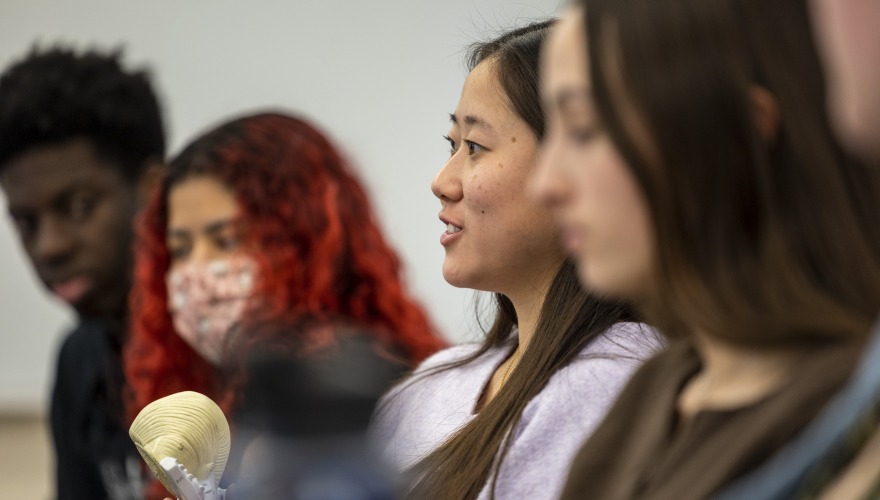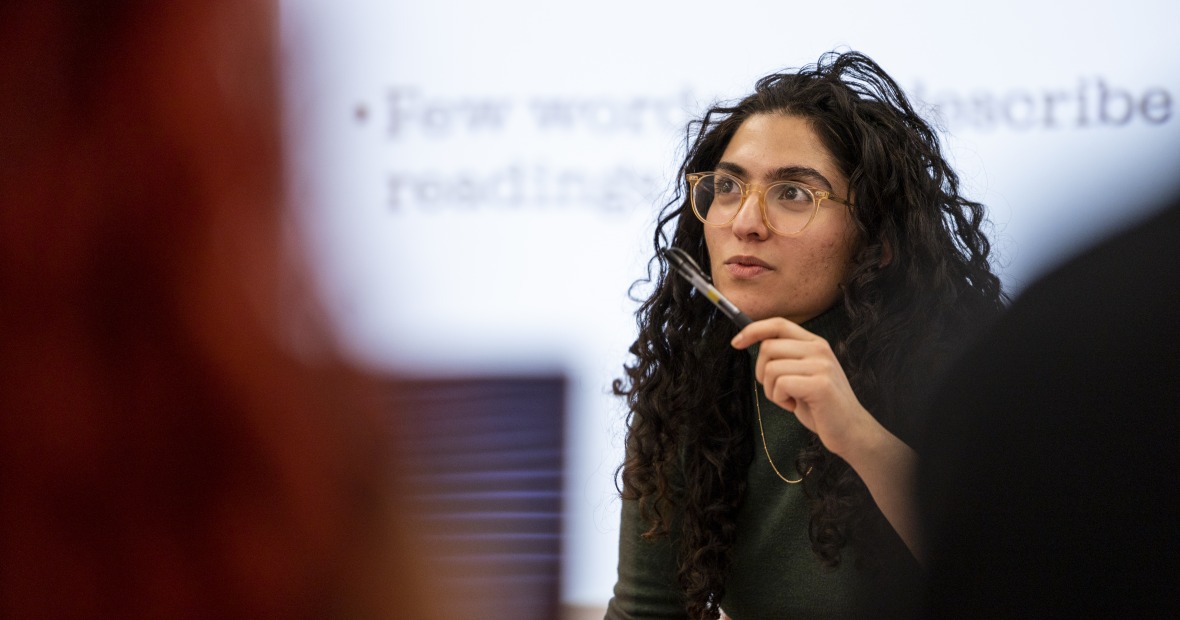Nadia Vossoughi Introduces Collective Action to Psychology Curriculum
Grinnellians thrive when given the opportunity to combine their academic interests with social issues. So does Nadia Vossoughi.
As an undergraduate studying psychology at the University of Kansas, Vossoughi didn’t immediately realize the full spectrum of issues that the discipline could address. It wasn’t until taking a course in social psychology that Vossoughi saw social issues she cared about being discussed through the lens of psychology. A recent addition to the faculty of the Grinnell psychology department, Vossoughi is now introducing the next generation of students to social psychology and the psychological motivations underlying collective action.
Vossoughi describes social psychology as the study of how the real or imagined presence of others or social situations influences individual and group-based thoughts, feelings, and behaviors. She’s especially interested in intergroup relations — studying the interactions between social groups as well as the causes and consequences of inequality amongst those groups. “From those interests, my research splits into two related strains,” says Vossoughi.
In Vossoughi’s first research avenue, she is studying barriers for women and racially minoritized people in academia and in the workforce. For example, some of her work explores the underpinnings of the biases and hostility that prevent women’s full participation in skilled trades. Her second line of research explores the motivations for collective action across group lines. Vossoughi studies how cross-group solidarity is fostered, and what enables individuals to commit to ideals that benefit the greater good, even when those ideals are detrimental to the individual.
“I think utilizing research in ways that support equitable social change really fits within the ideals of Grinnell students” Vossoughi says. Her multidisciplinary research is an exciting addition for Grinnell’s psychology students. With them, she’s begun applying her collective action research to international issues. Vossoughi is exploring how people in the U.S. understand and misunderstand the ways global inequality contributes to the consequences of climate change and the downstream consequences of these perceptions for international coalition building and collective action.
Vossoughi taught Social Psychology during the fall semester and is excited to delve deeper into her research interests with students in her Psychology of Collective Action course, being taught for the first time this spring. This interdisciplinary course takes students through readings by psychologists alongside work by those scholars in a range of disciplines and activists involved in social organizing and collective action — the likes of Malcom X and the Combahee River Collective. “How cool is it to get to teach a course on your own research interests and also to read outside your specific focuses?” Vossoughi asks. “In order to gain a richer understanding of the motivations underlying collective action.”


